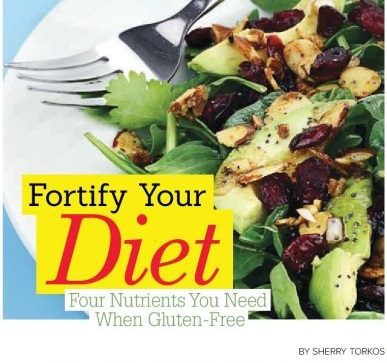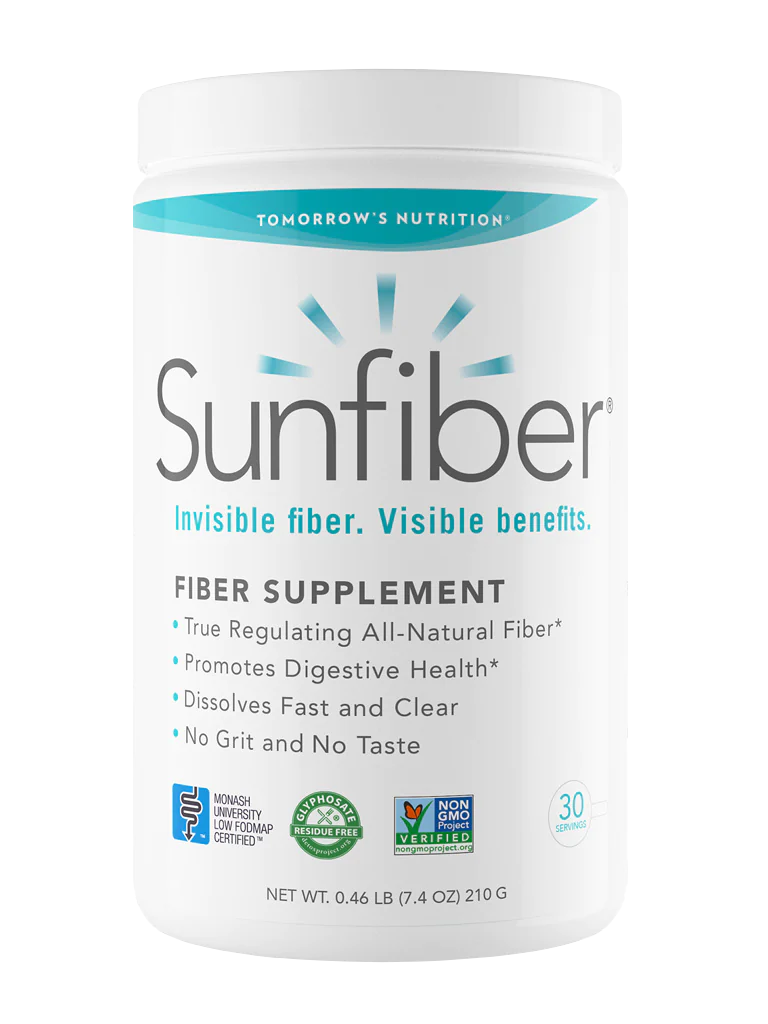Updated: October 25, 2023
Every diet runs the risk of excluding important nutrients.
In her Eating Naturally magazine article, holistic pharmacist Sherry Torkos explains that a gluten-free diet may lead to some nutritional shortfalls. If you have celiac disease, an autoimmune disorder aggravated by gluten, or simply feel better avoiding this protein found in wheat, rye and barley, Torkos offers some dietary tips.
The prolific author suggests choosing foods wisely, and including supplements such as Sunfiber to compensate for the nutrients your body may be lacking when you avoid gluten.
The Problem With a Gluten-Free Diet
Eating a gluten-free diet is easier than ever, thanks to the wide assortment of gluten-free products entering the market. But gluten-free diets can have some nutritional shortcomings.
Torkos has concerns. She wrote, “A lot of prepared gluten-free products are high glycemic, high in calories, low in minerals and fiber, and not fortified with vitamins. As someone whose body cannot tolerate gluten, I have learned how to adjust my diet, and how to compensate for nutrients that might otherwise be missing.”
Additional Nutrients You May Be Missing on a Gluten-Free Diet
People on gluten-free diets might consider adding these nutrients to their diet:
- B Vitamins
- Folic Acid
- Iron
- Fiber
- Probiotics
Since B vitamins are often lacking in grain-based, gluten-free products, consider a B-complex vitamin supplement. Look for a product with B1, B2, B3, B6, B12 and folic acid. Be sure to read the label carefully to avoid gluten-based fibers.
People with gluten intolerance are often anemic, yet may be reluctant to take iron supplements because they may be constipating. Look for a supplement made with SunActive iron. This iron ingredient is easily absorbed by the body, and is non-constipating.
Many gluten-free breads are made with rice or tapioca flour, and are low in fiber. Look for breads made with bean or nut flours, and add more high-fiber foods to your diet such as vegetables and seeds. “Because it’s tough to consistently get enough fiber, consider a natural fiber supplement,” Torkos said. “One that I recommend is Sunfiber. It is gluten free and easily added to just about any beverage.” Sunfiber is tasteless and odorless, and dissolves crystal clear in water.
Common gluten-free foods such as potatoes and rice pasta are high glycemic. Torkos suggests foods such as quinoa pasta, which can lower a food’s glycemic index value.
Gluten insensitivities may also create an imbalance in the gut’s microflora which may further compromise digestive health. Torkos suggests eating a daily probiotic yogurt, and nourishing the helpful bacteria with prebiotics.
If you have additional questions about the nutrients you may be missing on a gluten-free diet, we would recommend you speak to your doctor or nutritionist. You can also leave a comment below and we’ll be happy to help however we can.




0 Comments